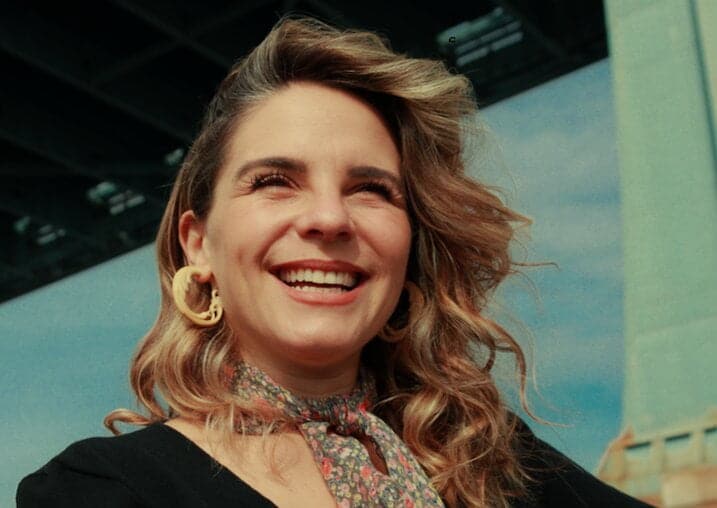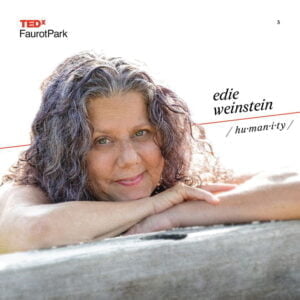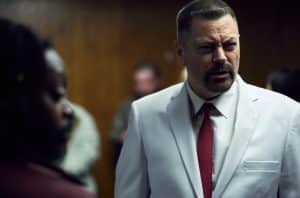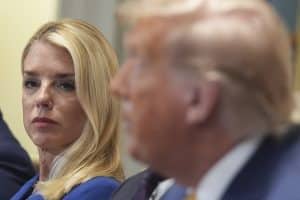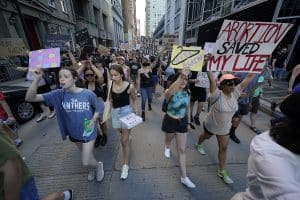Human beings have a symbiotic relationship with the planet, but often we forget that our actions have both positive and negative impacts on the ecosystem. Alisa Shargorodsky, the founder and CEO of ECHO Systems-Consulting, Education and Design, is a passionate protector of the environment. She takes the idea of reduce-reuse-recycle to a whole new level. Her background in Urban Design and her vision of a sustainable world have given her a platform from which to communicate that the time is long past for closing our eyes and ears, and for some, denying that we are in a global climate crisis. She is offering a sense of hope and some actionable steps that we can each take today that can make a difference. As a mother and grandmother, I want to do all I can to leave a sustainable planet for the next generations, so I appreciate Alisa’s inspiration.
Edie Weinstein: What inspired you to create ECHO Systems – Consulting, Education and Design?
Alisa Shargorodsky: I was actually inspired by the potential of society to wake up to the possibility of us collectively enacting solutions around ecological destruction. Obviously, this starts with education and gaining a better understanding of how the normalization of trash is really the only thing getting in our way of creating new systems.
Believe me, they are on their way, and they can’t come soon enough. Garbage is suffocating our oceans, polluting our planet, and creating many negative health outcomes that most people are fully unaware of.
READ: Shell’s New Pennsylvania Plant Will Produce Single-Use Plastics for 30 Years
This is what inspires us, the opportunity to create a new path forward. ECHO wants to elevate and liberate our partners in creating solutions alongside us. We know that in this busy life, it’s challenging to change things that seem to be working fine. We are inspired to help people and businesses to think more critically about how they choose and use resources. We love the idea of helping our community think about the true utility of their distribution methods and the externalities associated with these decisions from a life cycle perspective, to protect this planet best.
Edie: If it could meet your wildest expectations, what would ECHO accomplish?
Alisa: We have set goals and strategies within both our business and our non-profit. On the business side, it would be to work with local private and public entities to make reusable containers available and completely commonplace. It would be to have local restaurants and producers seek us out to provide either third-party wash services of containers so that they can service their customers with circular reusable packaging or to seek our assistance in helping food service establishments set up their own in-house reuse system. It would be to work with local school districts and companies like Chartwells, which services Council Rock School District and many others in the area, to do better and assure that all of their food trays are reusable. ECHO can assist them in securing their own ware washing infrastructure. Lastly, it would be to work with all the local public libraries and Nature Centers to provide education and programming around source reduction. We really have to hit this from multiple angles because the issue is pervasive. Our most clear and concise answer would be to welcome private donors to support our non-profit and liberate us to take this to a larger scale and have a more significant positive impact. If any readers are interested in making a tax-deductible contribution, please email us.
Our root mission for the non-profit is to build a foundation to service low-income businesses, providing them with both education and ware washing services so that they can make reuse available to their customers without breaking the bank. We want to be inclusive with this and assure that everyone has access, not only to wealthy communities. It’s often the fenceline communities that are mitigating everyone else’s garbage anyhow.
You know here in Philadelphia, we truck our trash to their neighborhoods for incineration and all of those trucks are creating serious environmental injustices that most of us are unaware of. We see this in Chester and Chester Residents For Quality Living (CRCQL) has been fighting Convanta, the incineration company for decades now. Energy Justice Network has data pointing to the negative impacts these impose on the surrounding communities. Also, we should note that waste to energy is far more polluting than coal so the whole green energy lie isn’t lost on most of us. We have known the truth since 2007 about waste to energy. We need more people to link their behavior to the larger contextual problem and we need corporations to innovate towards circularity.
Edie: Why more than ever is it crucial that we heed the warnings about environmental damage and climate crisis?
Alisa: Just to be clear, when we talk about garbage, I am mainly referring to single-use plastic. Plastic makes up a huge percentage of our waste stream. Plastic is also derived from unrenewable fossil fuels and natural gas. Here in PA, we are literally making plastic at the cracker plant in Beaver County and a lot of that plastic is PVC, polyvinyl chloride, the same nasty stuff that spilled and contaminated Palestine earlier this year when the train crashed.
Not only this, but we have also come up with endless energy-intensive ways to manage waste, from trucking it far distances to shipping it overseas on giant barges. Recycling is a very energy-intensive process that requires more and more resources. A recent EPA report published showed that Global carbon emissions from fossil fuels have significantly increased since 1900. Since 1970, CO2 emissions have increased by about 90 percent, with emissions from fossil fuel combustion and industrial processes contributing about 78 percent of the total greenhouse gas emissions increase from 1970 to 2011. That can’t be good when we are on the verge of climate collapse. Also, recycling is not a solution when we are shipping it to poor countries with no infrastructure to manage these materials. Prevention is key and circularity plays a critical role here.
Edie: Do you have insight into why human beings need to be in crisis mode to wake up and take action?
Alisa: This is my favorite question by far. There is tons of research on this. I am particularly interested in Daniel Kahneman, Nobel Memorial Prize winner in economics and author of Thinking, Fast and Slow, who writes that we have trouble responding to threats that we are uncertain about. However, as we can see our own weather patterns shifting, now all of a sudden, we are coming online with high alert. I am also interested in the perspective of Jane McGonigal, the research director of the Institute for the Future, who wrote in a 2017 article for Slate that people generally have challenges thinking out future threats, especially when they pertain to others. It’s one thing to watch a fire on your TV or see images on social media, it’s different when it’s actually happening to you in real time. It seems like both are an issue with our imagination and empathy. I hear some elders say that they are happy they won’t be around for the true climate collapse, and this just makes no sense to me because we need to secure the same beautiful life we have had for future generations. It’s not always about us. It’s like that saying, One generation plants trees so that the next generation enjoys the shade. These are principles that are needed to keep life on earth. Since when did it become about cutting all the trees, metaphorically and harming future generations? This is a fairly new orientation that I think we need to drastically re-evaluate.
READ: Quaker Climate Justice Group Builds Skills to Shine Light on Vanguard’s Climate Problem
Edie: I understand that ECHO is for both consumers and business owners. Can you please explain the various offerings you have?
Alisa: Right now, we predominantly work B2B (business to business). We haven’t launched a customer-based membership yet. That will come in the future when we have enough customers in a concentrated area, making customer management necessary. We are interested and committed to providing educational resources to our communities though.
Edie: Do you consider yourself both an educator and an activist?
Alisa: Yes absolutely, I have worked in educational settings in the past. I taught organic gardening to inner city high school kids while I was a student at Penn. I also was the program manager for the Philadelphia Watershed Stewardship program funded by the Philadelphia Water Department. We taught high school students about inner city infrastructure and green stormwater infrastructure (GSI). One day, we did a clean-up with about 20 youth, and they pulled 600 lbs. of garbage out of the tributaries near Cobbs Creek. They were honestly astonished, and some said they never even thought about their garbage. I truly do believe that education is the highest form of activism because you are arming people with knowledge and that is one of the few things that can stem the tides of change. Also, providing third-party ware-washing services is also a kind of activism because we make alternatives available with circularity of our resources, we now operate in a linear economy where we make goods, use them, and trash them. So yes, our business model is also activism, but not the picketing kind, more direct action.
Edie: What is radical reuse?
Alisa: Radical reuse is a culture shift. It’s people refusing to take plastic bags from the grocery store because they are self-reliant and bring their own (BYO). Radical reuse is the act of individuals always having their coffee cups. They reuse because someone told them that their paper cup has a plastic barrier lining that is leaching into their drink and disrupting their hormones and they decided they would radically change their behavior and BYO. Radical reuse happens when business owners start to make reusables available to their customers and the customers agree to pay a refundable deposit to avoid making garbage. We work in several grocery stores, one has circulated 18k containers with their reuse program and that is radial reuse. It’s doing something outside of the norm. It’s bringing your container to buy bulk food. It’s farmers’ Markets deciding to stop giving out plastic bags. It can look like many things but mostly, it’s reusing your own bags or cups and refusing single use by taking responsibility for this planet.
Edie: Please talk about the single-use model vs. the zero-waste model.
Alisa: I kind of touched on this a bit earlier on. Every single thing we buy has a byproduct. Think about your grocery store. When I shop, I can’t help but see the shelves and think about all the plastic and where it’s going. I can’t help but feel upset when I see people double bagging groceries to this day. The reuse model is about circularity. It’s about optimizing our resources. Tom Szaky, CEO of Loop is working with major brands like Haagen Daz and Colgate to make prefilled items refillable and returnable. I sit on an international standards committee, and I can tell you all the big players are at the table because they know it’s coming. This fits into the Zero Waste model, where trash is not made in the first place. This is a stark difference from the single-use model, which is linear in nature and creates an entire mélange of ecological and health issues.
READ: Middletown Township Looks Toward Creating a More Sustainable Future
Edie: How do we confront the powers that be wanting us to be addicted to single-use plastics?
Alisa: We are already doing it. Upstream Solutions hosts a network of NGOs, businesses, governments, and individuals working on this issue and I can tell you there are more than 500 groups in the network. Also, Senator Jeff Merkley of Oregon facilitates hearings on plastic, and they are quite illustrious. Expert testimony is provided by individuals who have studied the impact of plastic chemicals on child brain development to individuals living in Cancer Alley. I think the government is getting the point. I think all we really have to do now is get money out of politics because we know this is impacting decision-making. Really, we need more people to come to the table. We need a massive shift on behalf of everyday people. We need people to feel less apathy towards this planet. It isn’t someone else’s job, it’s our job to come to the table on these issues. They are more serious and impact us in ways that most of us don’t even know. If we knew how toxic plastic really is, we would be outraged. There are more than 18,000 petro-based chemicals in our plastic products.
Edie: Are there local businesses already involved in this Earth-saving process?
Alisa: Some are, many have chosen to pick less plastic-based products for their packaging. During the plastics hearings in Newtown, a chocolatier said he wanted to use less plastic, but he didn’t know where to start. I work with one of the oldest ice cream makers in Philadelphia, Franklin Fountain, and Shane Confectionery. We are planning the rollout of pre-pack ice cream in a reusable container.
The challenge comes with greenwashing though, and everyone needs to be on high alert about this because not all “green” products or alternatives are better. We call this a regrettable substitution because some compostable wares or corn-based plastic, can never actually be composted and many contain forever chemicals also known as PFAS. We really have to do our research and that is why ECHO is here, to help with this complex landscape. Packaging is challenging and labeling is also equally complex. I always remind our partners that the solution will develop slowly, and testing is always recommended but the worst thing we can do is continue to pollute without doing our part. I can’t help but feel my stomach churning when I see people putting bananas or potatoes, onions or really any produce in those roll bags, it’s so unnecessary and wasteful. Please stop using them. Just buy some cloth bags. You can literally buy a dozen for less than $10.
Edie: Does banning plastic bags in grocery stores make a difference? By the way, I carry my own bags not only for grocery shopping but at any store. I take them home and wash them in between. I know it is only one small action.
Alisa: It isn’t small at all, it’s huge. In the short period of time that Philadelphia has banned plastic bags, they have already reduced usage by hundreds of thousands. Now that PA has done away with preemption which blocked the ban on plastic bags, now dozens of municipalities are moving forward with their own bags.
READ: Bucks County Is Making Strides in Reducing Single-Use Plastics Consumption
I have been using my own cloth bags for decades. Just think about all the single-use plastic that just you and I alone have prevented. I have read some Life Cycle Analysis reports recently that say that cloth bags and cotton bags have a far worse ecological footprint, but I can’t help but wonder if that study was funded by the industry. It just makes no sense. Also, are we looking at the true cost economics or the true cost to our planet? Many of us have heard about the great Pacific garbage patch. Well, there are five land masses as large as North America of spiraling plastics that are photo degrading into microplastics causing something they call “Toxic Soup.” It’s just sickening, can we think about all the other species here on this planet? It’s not some hippie thing, it’s a human thing and we all need to act now.
Edie: Are there other actions people can take to make a difference?
Alisa: Yes, there are big ones. Right off the bat, if your family buys cases of bottled water, look back at how much money you have spent on these cases alone over the past year. Could you have purchased a really nice water filter and some reusable stainless steel water bottles for this same cost? I highly recommend reading The Zero Waste Chef by Anne Marie Bonneau. Also, if you have any space around the exterior of your home, consider creating a compost pile to keep food scraps out of the garbage, that should cut your trash down a whole lot. There are a lot of bar soaps and shampoos that are quite nice, and this can have a big impact on reducing plastic. Also, seek out a local food co-op that has a bulk department. This way you can fill up all your own containers that you bring from home. When you go out to eat, keep a container in your car for leftovers. BYO your own water bottle and bags. If more people take these small steps, we will collectively make a difference.
Edie: Are there books you would recommend that can motivate people to get involved in environmental stewardship?
Alisa: Absolutely, here are my top five.
Plastic-Free: How I Kicked the Plastic Habit and How You Can Too, by Beth Terry
A Zero Waste Life in 30 Days, by Anita Vandyke
Give a Sh*t: Do Good. Live Better. Save the Planet, by Ashlee Piper
101 Ways to Go Zero Waste, by Kathryn Kellogg
And to really get you inspired and terrified:
The Sixth Extinction: An Unnatural History, by Elizabeth Kolbert
Edie: Is there anything else you would like to share with the readers?
Alisa: This is not something we are going to do perfectly. Still, it is incredibly important right now more than ever before. Doing something and paying attention to your own consumption is going to be very important. We make garbage in my family, it’s unavoidable because everything is garbage, still. We need to imagine a better way and help shepherd these opportunities more and more in our workplaces, homes, and communities. At ECHO we are interested and committed to collaborating with business owners and community groups. We are also seeking private donors to help us do our work even better and ECHO is a 501c3 non-profit organization so all donations are tax deductible. If you should have any questions, please email us at admin at ourechosystem.com
